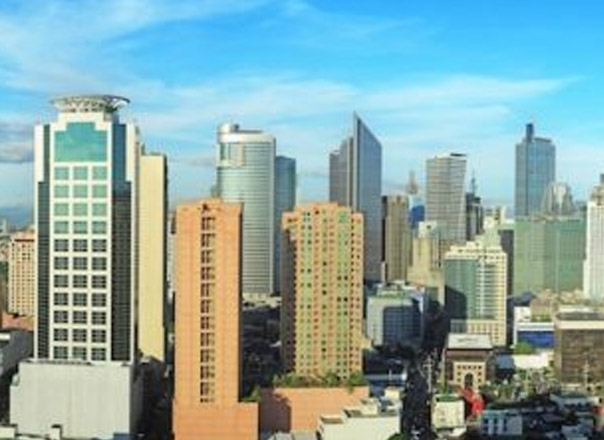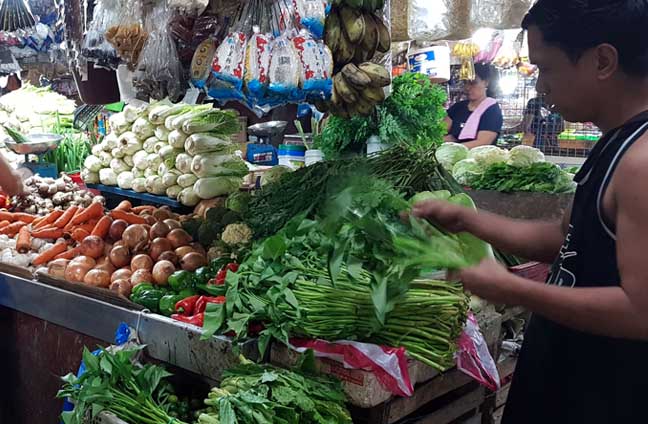PRICE increases of major commodities slowed down further in March mainly due to the potential adverse impact of the coronavirus disease (COVID-19) on the domestic and global economic environment.
The Philippine Statistics Authority (PSA) yesterday said inflation decelerated further to 2.5 percent in March 2020, from 2.6 percent in the previous month.
Inflation in March a year ago was higher at 3.3 percent.
PSA said the slowdown in inflation in March 2020 was primarily due to transport whose index dropped at an annual rate of 1.8 percent.
Slower annual increments in the indices of alcoholic beverages and tobacco at 18 percent; and housing, water, electricity, gas and other fuels at 1.1 percent, also pushed down the inflation during the month.
On the other hand, higher annual increases were noted in food and non-alcoholic beverages; furnishing, household equipment and routine maintenance of the house; communication; and recreation and culture.
Excluding selected food and energy items, core inflation slowed down further to 3 percent in March 2020. In the previous month, core inflation was at 3.2 percent, and in March 2019, 3.5 percent.
The March figure was within the forecast range of the Bangko Sentral ng Pilipinas (BSP) of 2 to 2.8 percent.
Benjamin Diokno, BSP governor, said the latest inflation outturn is consistent with the BSP’s prevailing assessment that inflation is “expected to be benign over the policy horizon due to the potential adverse impact of COVID-19 on the domestic and global economic environment.”
During its monetary policy meeting last week, the Monetary Board noted that the balance of risks to the inflation outlook now leans toward the downside for both 2020 and 2021.
“The uncertainty over the strength and duration of the pandemic poses significant downside risks to aggregate demand,” Diokno said.
The Monetary Board noted that while the enforcement of quarantine measures could help in slowing the spread of the virus, the resulting disruptions to industries and private spending are likely to reduce economic growth in the near term.
“COVID-19 has likewise dampened prospects for the global economy, which could negatively impact tourism, trade, Overseas Filipino remittances, and foreign investments,” Diokno said.
“The BSP recognizes that the health and safety of the Filipino people remains the government’s foremost priority. In this regard, the BSP reiterates its support for urgent and carefully coordinated measures with other government agencies to alleviate the spillover effects of the pandemic on people and firms, with a view toward preventing any long-lasting economic and social damage,” Diokno added.
Recognizing the negative effects brought by COVID-19 to the Philippine economy, the Monetary Board released a number of monetary tools starting with the reduction of the key rates of the BSP by 50 basis points (bps).
Central banks lower interest rates to encourage borrowing and investing, thereby possibly stimulating economic growth. But this may hasten inflation.
Rates are raised, meanwhile, when there is too much growth. Higher borrowing rates slow inflation and return growth to more sustainable levels.
The Monetary Board also authorized the time-bound, temporary relaxation of BSP regulations on compliance reporting by banks, calculation of penalties on required reserves, and single borrower limits.
Earlier, the BSP arranged for the purchase of government securities from the Bureau of the Treasury under a repurchase agreement in the amount of P300 billion.
It also reduced the reserve requirement ratio of big banks by 200 bps and policy rate by 50 bps and approved a temporary reduction in the term spread on rediscounting loans relative to the overnight lending rate to zero.
In addition to the monetary policy actions that have been announced, Diokno said the BSP stands ready to deploy all available measures in its toolkit as it continues to assess the impact of the global pandemic on the domestic economy.


